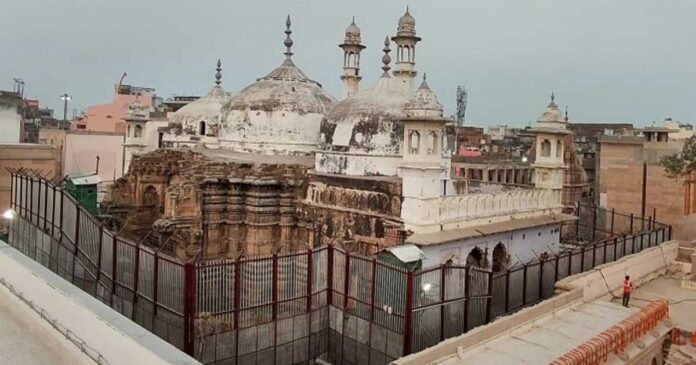In a landmark judgment, the Allahabad High Court on Tuesday provided a significant ruling on the Gyanvapi mosque dispute, dismissing five petitions and categorizing the suit as one of “national importance.” The Gyanvapi mosque, situated in Varanasi, has been at the center of a protracted legal battle between the UP Sunni Central Waqf Board and the Gyanvapi mosque committee. Suit No. 610 of 1991, filed over three decades ago, has witnessed numerous legal intricacies, and the recent judgment brings renewed attention to the case, emphasizing its impact on “two major communities of the country.”
Justice Rohit Ranjan Agarwal’s critical determination that the suit is not barred by the provisions of the Places of Worship Act, 1991 is a significant turning point. This Act, enacted to prevent the conversion of places of worship and maintain communal harmony, lacks a clear definition of “religious character.” The court’s recognition of this gap sets the stage for an in-depth examination of the complexities surrounding the Gyanvapi dispute.
Legal Nuances: Interpreting the Places of Worship Act
One of the notable aspects of the court’s decision is its acknowledgment of the ambiguity within the Places of Worship Act. While the Act defines terms such as “conversion” and “place of worship,” it falls short of providing a clear definition for “religious character.” Justice Agarwal emphasized that the determination of the religious character of the disputed place, comprising settlement plot Nos. 9130, 9131, and 9132, can only be ascertained through a thorough examination of evidence presented during the legal proceedings.
The court’s keen observation on the lack of definition for “religious character” underlines the intricate legal terrain the Gyanvapi dispute navigates. As the court directed the trial court to proceed with the matter expeditiously and conclude the proceedings within six months, it aims to prevent unnecessary delays and bring clarity to a case that has been pending for more than three decades.
Balancing Communal Sensitivities
The court’s order also addressed the crucial question of whether the Gyanvapi Compound holds a Hindu or Muslim religious character. The assertion that the compound cannot have a dual character simultaneously reflects the court’s commitment to unraveling the truth during the legal proceedings. The Gyanvapi dispute, entangled in legal intricacies for over three decades, holds implications beyond its immediate scope, as the court acknowledged its “national importance” and the need for a delicate balance between legal proceedings and societal harmony.
The court’s insistence on expeditious proceedings aligns with the broader goal of resolving a dispute that has lingered for an extended period. The directive to conclude the proceedings within six months reflects a commitment to efficiency and an avoidance of unnecessary delays. As the legal proceedings unfold, the Gyanvapi dispute remains a focal point for discussions on the delicate interplay between law, history, and communal sentiments.
Charting a Fair and Just Resolution
The Allahabad High Court’s verdict on the Gyanvapi dispute marks a pivotal moment in the legal journey of this longstanding case. The decision carries implications for similar disputes across the country and prompts a reexamination of the Places of Worship Act. As the legal process moves forward, the focus remains on achieving a fair and just resolution that respects the diverse fabric of India’s cultural and religious landscape.
The Gyanvapi dispute serves as a microcosm of the challenges presented by the legal intricacies surrounding places of worship and their historical significance. The court’s recognition of the suit’s significance underscores the need for a nuanced approach that respects legal principles amidst religious sensitivities.
In conclusion, the Allahabad High Court’s verdict on the Gyanvapi dispute signifies a crucial chapter in the legal discourse surrounding religious places in India. The ongoing legal proceedings will not only determine the fate of the Gyanvapi Compound but will also shape the broader understanding of religious character in the context of historical places of worship. The court’s emphasis on expeditious proceedings and evidence-based determinations signals a commitment to justice while acknowledging the delicate nature of the dispute’s historical and communal dimensions.
